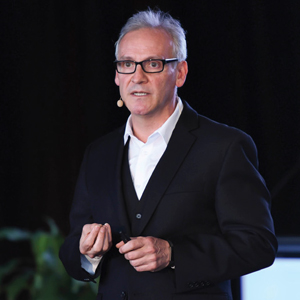THANK YOU FOR SUBSCRIBING

Capital Markets Industry Demands Unique Approach to IT Strategy
Stephen Cooper, Head of Technology, Liquidnet


Stephen Cooper, Head of Technology, Liquidnet
In the world of capital markets, specialized areas such as electronic trading and risk management are so demanding of computing resources and critical to the business that they frequently call for unique computing platforms. This often includes advanced technology not yet found in commoditized IT environments. For example, firms in the high frequency trading arms race are starting to use microwave transmission to communicate with markets faster than their competition can. Pricing and risk management teams have been consuming advanced technology to crunch their models and simulations for years. Even the modern day equivalent of financial garage firms, the bitcoin miners, are buying up high-end GPU power as fast as it can be printed.
"Investment in service orientated architecture needs to be carefully managed to avoid being saddled with barriers and duplication across platforms"
It is no surprise that financial services firms have typically been early adopters of hardware innovations, such as high-throughput network backbones, sub-microsecond latency monitoring equipment, and Field-Programmable Gate Array (FPGA) cards, with the largest firms often leading or driving the research and development within the computing industry. However, depending on the size and scope of your organization, these technology considerations can dominate the attention of management or at the other extreme may be somewhat limited to specific lines of business or functions. Therefore it is important for CIOs of capital markets firms to understand, manage, and communicate the distinctions between areas that can be materially sensitive to advancements in technology, and other more traditional service areas. A good understanding of these dynamics is key to having a successful strategy that includes appropriate architecture, proper (if any) use of hot commodity services such as cloud services, and strong partnerships in the industry. Architecture Some of the biggest non-government consumers of advanced computing technology are often defense contractors who clearly require significant investments in property, plant, and equipment. Within the capital markets industry, this investment may not seem as obvious. One reason is the information-centric nature of capital markets which often leads to close interaction and even gray areas between platform-sensitive systems and other resources. Another reason is that these advancements often represent short-lived competitive advantages that decay over time and then get replaced by commoditized or vendor-supplied solutions comparable to corporate technology.Weekly Brief
I agree We use cookies on this website to enhance your user experience. By clicking any link on this page you are giving your consent for us to set cookies. More info
Read Also
Listening Beyond Hearing
Modernizing Lending Through Innovative, Secure and Scalable Technology
Advancing the Chemical Industry through Digital Transformation
Cultivating a Sustainable Future through Collaboration
Mastering Digital Marketing Strategies
Building a Strong Collaborative Framework for Artificial Intelligence
From Legacy to Agility Through Digital Transformation
Change Management for Clinical Ancillary Teams: Aligning Practice with Policy and Progress





















